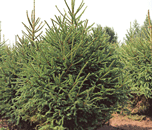- Hot topics
- Join Now!
Lifestyle Dec 07
2007-11-12T00:00:00

Don't let it cost the earth, here's 7 ways to a greener Christmas
To continue reading, register today for more access!
If you are a member or a registered user, or if you already have a login for another Premier website SIGN IN HERE

Sign up for your free account now!
Registering is quick and easy and gives you immediate access to read more articles, plus:
- You’ll receive a weekly newsletter every Saturday with the top stories of the week
- You can save articles to read later
- You can share your comments and thoughts on the stories
Or become a member today for unlimited access! Special offers are available!
If you already have an account with a Premier website SIGN IN HERE
Related articles
-
 Opinion
OpinionFour ways you can buy slave-free gifts for Christmas
2025-12-12T05:24:00Z By Nicole Watt
Nicole Watt invites us to rethink our holiday shopping through the lens of justice and compassion. Her reflections remind us that even small, intentional choices can help shine Christ’s light into places still marked by exploitation.
-
 Article
ArticleIn case this isn’t obvious: We need each other
2025-11-26T05:47:00Z By Belle Tindall
In her last column, Dr Belle Tindall reasserts her belief that Christian feminism is ‘a communal endeavour’
-
 Article
Article‘And now, here I am, a wife’
2025-09-23T06:41:00Z By Belle Tindall
As Christian and feminist theologian Dr Belle Tindall becomes Mrs Belle Riley, she shares why the concept of marriage is complicated for her – and why she decided to embrace it anyway
More from Home
-
 Opinion
OpinionShowing our kids that following Jesus is a great adventure
2021-06-16T00:00:00Z
As we approach Father’s Day, Andy Frost thinks back to how his dad influenced his own Christian journey when he was younger. He also shares details of a great new resource to help fathers as they take their kids on an adventure of faith.
-
 Opinion
OpinionG7: we needed more actionable steps
2021-06-15T00:00:00Z
Lovely Chavan from the Young Christian Climate Network believes the G7 talked about many vital issues, but didn’t provide a clear explanation on what happens next
-
 Opinion
Opinion‘World leaders must stop reiterating empty promises’
2021-06-15T00:00:00Z
Rachel Mander from the Young Christian Climate Network reflects on the recent G7 summit in Cornwall
- Issues
- Topics A-Z
- Writers A-Z
- © 2026 Woman Alive
Site powered by Webvision Cloud























